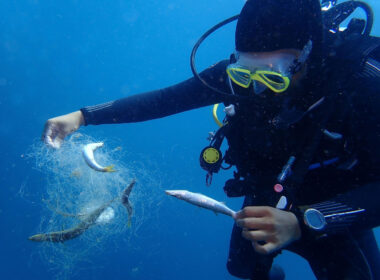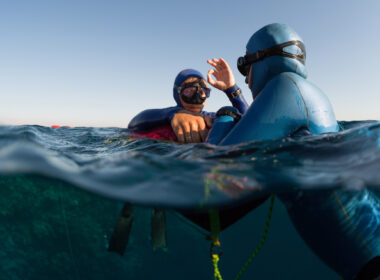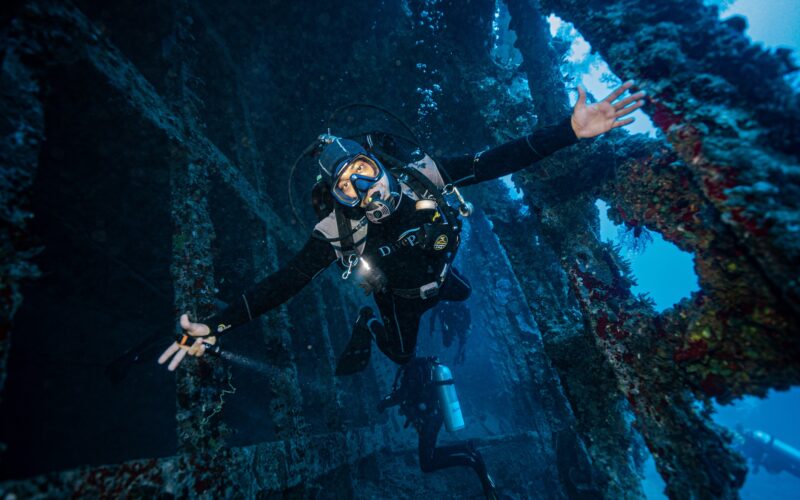Being a woke diver goes beyond just enjoying the underwater world. It means actively working towards its preservation and being mindful of the impact your actions have on the environment. By following our seven tips below, you can make a positive difference in marine conservation and inspire others to do the same.
No matter what kind of diver you are, you need diving insurance to keep you safe if something doesn’t quite go as planned. Get covered today.
Environmental Awareness
Stay informed about the environmental issues affecting oceans and marine life. Educate yourself about climate change, overfishing, pollution, and coral reef conservation. Stay updated with current research and news to understand the challenges faced by marine ecosystems.
As a woke diver, do what you can to avoid contributing to these issues, you can take action such as:
- Overfishing: Avoiding consumption of seafood, especially from large commercial trawlers, if you want to continue to eat seafood, do so responsibly, reduce and limit to locally caught or sustainably farmed fish.
- Pollution: Although we can’t make changes on a global scale, we can reduce our personal pollution by only using natural and biodegradable products such as dish soaps, washing powder, substitute shower gels and shampoos in plastic packaging to natural soap and shampoo bars. Need sunscreen? Avoid using sunscreens with chemicals that harm the reef, many sunscreen brands offer reef safe products, although you can’t always just believe the label and must do your own research as the “reef safe” label is not well regulated yet.
- Coral Reef Conservation: Become a volunteer on your next vacation, you could join a coral planting/ transplanting program with a dive center or conservation center. Look out for coral planting events, some dive centers offer this type of dive on a regular basis, whereas others only allow volunteers to join an event once a year. Additionally you can educate yourself by attending a course about coral reef awareness and conservation.
In a Green Fins study conducted in 2022 divers from different training levels, ages and demographics were asked if “they are looking to further their education on protecting marine life while on vacation?” a whopping 82.9% said Yes!
Responsible Diving Practices
Follow responsible diving practices to minimize your impact on the marine environment. Avoid touching or damaging coral reefs and other marine organisms. Practice proper buoyancy control to prevent accidental contact with fragile underwater habitats.
Learn how to behave properly under the water, be a positive role model to other divers and influence dive centers by taking the Green Fins e-Course from our partners at Green Fins and The Reef World Foundation. A great way to promote responsible diving.
As a DiveAssure member you receive 10% discount on all Green Fins educational courses.
Sustainable Gear
Opt for eco-friendly diving gear whenever possible. Look for equipment made from recycled or sustainable materials. Avoid “fast, cheap fashion” and gear that utilizes harmful chemicals or contributes to plastic waste. Choose dive operators and resorts that prioritize sustainability in their operations and above all, limit new purchases to things that you really need and will use for a long time.
Eco Friendly Wetsuits
Ethical diving also means being mindful of the diving equipment you use. Not everyone is aware that neoprene is a synthetic material made from petroleum oil, a large pollutant and is not widely recycled. You can look out for eco-friendly alternatives, brands such as Patagonia produce wetsuits from Yulex, a neoprene free and a natural sustainably sourced rubber. Another option is Eicoprene used by brands such as Fourth Element or Picture Organic Clothing, which is a mix of recycled materials and limestone and is, unlike conventional neoprene, free of petroleum.
Other eco-friendly wetsuit brands include Matuse and Suga, but there are always more options appearing on the market and you should do your own research before purchasing.
Environmentally Conscious Computers
A dive computer is a must for safe diving, unfortunately, like most electronic devices, there are many things about a dive computer that are just not eco-friendly or sustainable. The best we can do is reduce the amount of new computers we buy, buy second hand where it makes sense and purchase computers that are known to be long lasting, especially where battery life is concerned. Shearwater is known for producing dive computers with long-lasting batteries and upgradeable firmware, this reduces the need for frequent replacements. Other examples include the Suunto EON Steel or the Garmin Descent MK2i which are both computers that focus on durability and longevity.
Fair Fins and Responsible Regulators
Some brands, like Cressi and Mares, have started using recycled materials in their fin production. Look for fins made from recycled plastics or biodegradable materials.
Other companies, such as DiveR, produce fins that are entirely handcrafted, reducing the environmental impact of manufacturing processes.
Regulator brands like Apeks, Scubapro, and Atomic Aquatics are known for their commitment to sustainability. They prioritize durable designs and use materials that can be easily recycled or repurposed.
Eco-Friendly Accessories
Fourth Element offers a range of sustainably made dive accessories, including gear bags, rash guards, and dive masks made from recycled materials.
Waterlust offers a range of accessories and ocean themed swimwear with UPF 50+ allowing you to look fabulous while reducing on sunscreen usage. 10% of their profits goes towards supporting ocean conservation.
Stream2Sea produces eco-friendly sunscreen and skincare products specifically designed to minimize harm to aquatic ecosystems.
Although eco-friendly and or sustainable products are a great step forward, the best step we can take is to question our purchase and only buy what we truly need to replace, if it is time to say goodbye to an item, look into how you can upcycle this or where it can be recycled in a responsible manner.
It’s important to note that sustainable options may vary depending on availability and region. Researching specific brands and their sustainability initiatives is a good starting point to make informed choices.
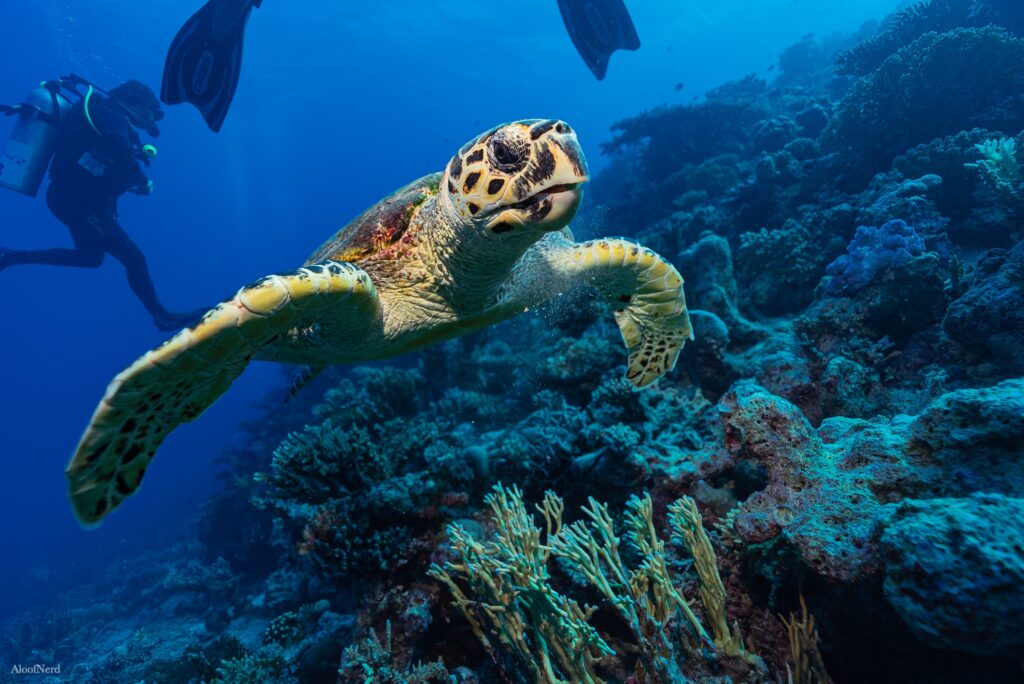
Ethical Marine Wildlife Interactions
When encountering marine life, it is easy to get carried away by the excitement and often overreact to the situation, perhaps not behaving in a way we would do with wildlife on land; desperate to get a closer look, get that perfect picture, or maintain the animal within sight, we may inadvertently chase, harass or get too close to that animal.
It is important, when interacting with marine life, to maintain a respectful distance and avoid disturbing or harassing the animals. Refrain from feeding, touching, or chasing marine creatures. Be cautious and aware of your actions to avoid causing stress or harm.
To conduct responsible diving, watch what your fins are doing, ensure they are always up and off the bottom of the reef or ocean floor. Another way to harass underwater life is with photography, be mindful when using an underwater camera with flash, limit the use of the flash as much as possible and if you see the animal is getting distressed then stop taking photos with flash immediately. Taking a good photo should always come second to ensuring you are not disturbing, scaring or damaging any marine life.
Reduce Single-Use Plastics
A woke diver, is aware of the oceans problems. Slowly we are all becoming aware of the plastic pollution problem, this is especially notable with single-use plastics where millions of items are used per day that get used for less than a second before being tossed aside. Even when disposed of “correctly” we cannot be sure where our trash is ending up in the long run. Many countries do not have proper disposal sites set up and trash often ends up in landfill which can eventually make its way into water sources such as rivers and get released into the ocean.
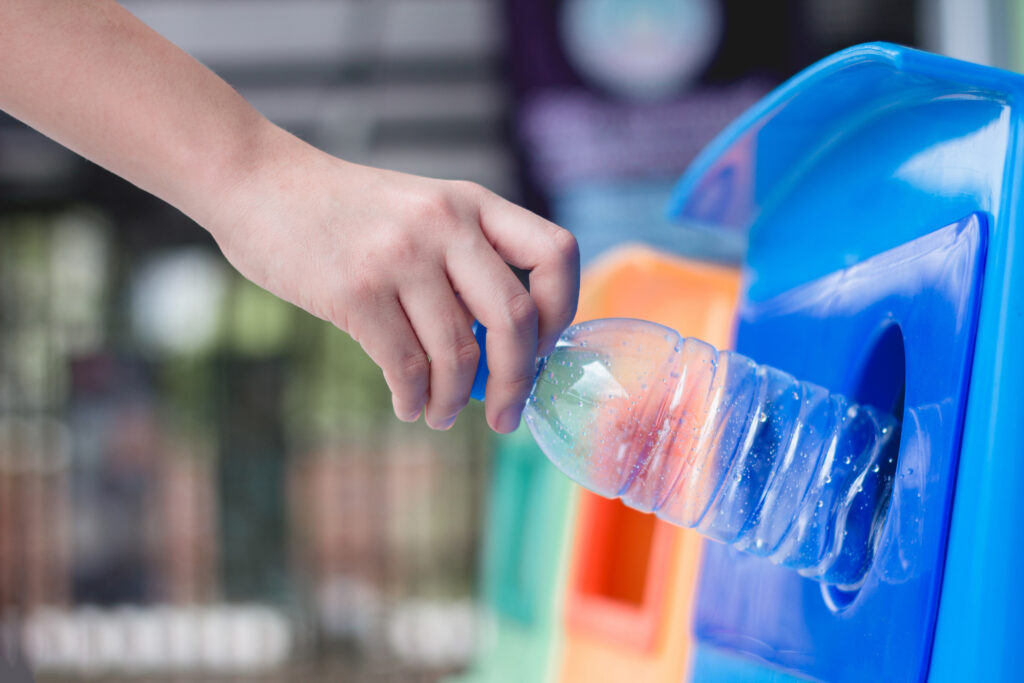
Avoid or Minimize your Use
Single-use plastics are a significant threat to marine life. Minimize your use of single-use plastics by carrying a reusable water bottle, avoiding plastic straws and cutlery. Find skin and hair care products in eco friendly, reusable packaging.
When purchasing new items, find companies that will package their wares using reduced, eco-friendly, compostable packaging.
Properly dispose of any waste and encourage others to do the same, if you dive with a dive center that uses single-use plastics on their boat trips and at their dive center, ask them why and discuss with them possible alternatives. Sometimes it’s just a case of habit and not having thought to change.
Want to do more? Discover 10 Ways you can support ocean health
Dive with Eco-Conscious Operators
More and more tourists, especially divers are becoming eco-conscious and demanding more eco-conscious travel and tours, it isn’t always easy to find out which operators are truly putting in effort to run in a more eco-friendly way and often companies can call themselves an eco center and market themselves as such without actually having made any real changes.
Choose dive operators that prioritize environmental sustainability and promote responsible diving practices, before you reach your destination you can research this by going online, looking at their website and social media and checking their reviews. Recent reviews and social media posts are especially important as it gives a current insight into how the dive operator runs. Additionally, you can look for certifications such as being a Green Fins member, an SSI Blue Oceans Center or PADI Eco Center which indicate adherence to environmental standards. These operators often focus on minimizing their carbon footprint, reducing waste, and supporting conservation efforts.
From a Green Fins survey conducted in 2022, diving tourists were asked how they feel towards sustainability, when asked if dive operators should be doing more to conserve the reef a whopping 95.3% of people said “Yes” and when asked if they were willing to pay more for a sustainable option for travel or diving 75.8% of respondents said “yes!.
Share Knowledge and Advocate
Stay curious and continue to learn about marine ecosystems, conservation efforts, and evolving diving techniques. Attend workshops, conferences, or seminars to expand your knowledge and skills. Stay updated on the latest scientific research and best practices in diving and freediving.
Use your knowledge and experiences to educate others about the importance of marine conservation and sustainable diving. Share your insights through social media, blog posts, or by organizing local events. You can also share knowledge with your dive buddies, especially if you saw they did something underwater that potentially harmed marine life, try to discuss it without preaching and see if they were aware of their behavior and that it can do damage to the underwater world.
Often it is a case of lack of knowledge or education as to why we behave as we do. For example, in some places divers are still taught to hold onto the reef and touch the bottom. Sometimes if students have learned to dive in an environment where there is no marine life to damage, the instructor may not talk about the importance of staying off the bottom or the reef and therefore the diver never learned that this behavior could be detrimental to the underwater environment. Advocate for stricter regulations and sustainable practices in the diving industry.
Be Mindful of Cultural Sensitivities
When diving in different locations, respect the local culture and customs. Be aware of any specific guidelines or restrictions that apply to diving activities. Engage with local communities respectfully, supporting their livelihoods and sustainable practices.
In conclusion, being a woke diver in 2025 means embracing a mindset of environmental consciousness and responsible practices. It entails staying informed about the challenges facing our oceans, supporting local initiatives, and advocating for marine conservation. By choosing sustainable gear, reducing single-use plastics, and engaging in ethical interactions with marine wildlife, we can minimize our impact and protect the fragile ecosystems we explore.
As woke divers, we strive to inspire others, share knowledge, and foster a deeper connection with the underwater world. Together, we can make a positive difference and ensure the preservation of our oceans for generations to come. So, let’s dive with awareness, respect, and a commitment to a sustainable future!



